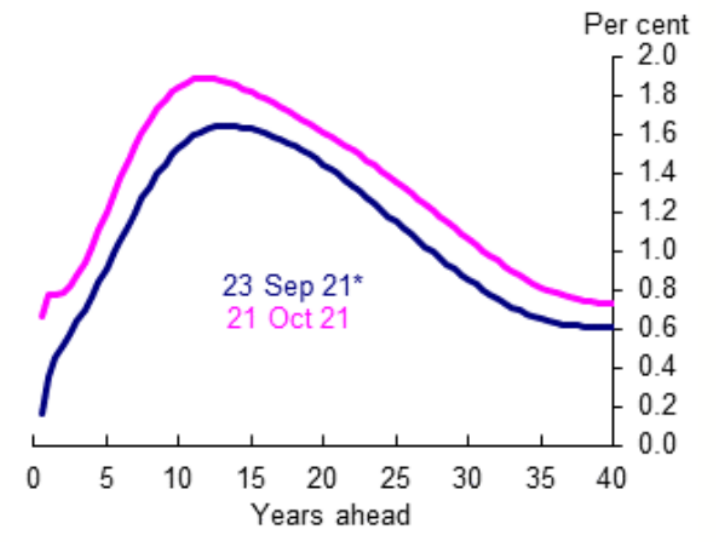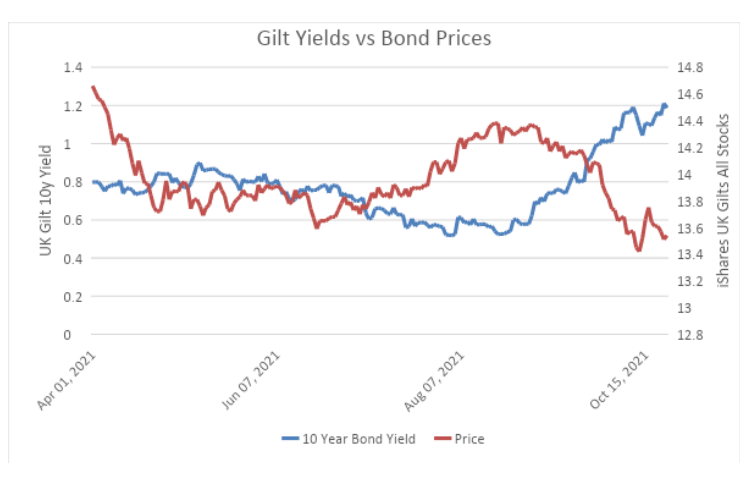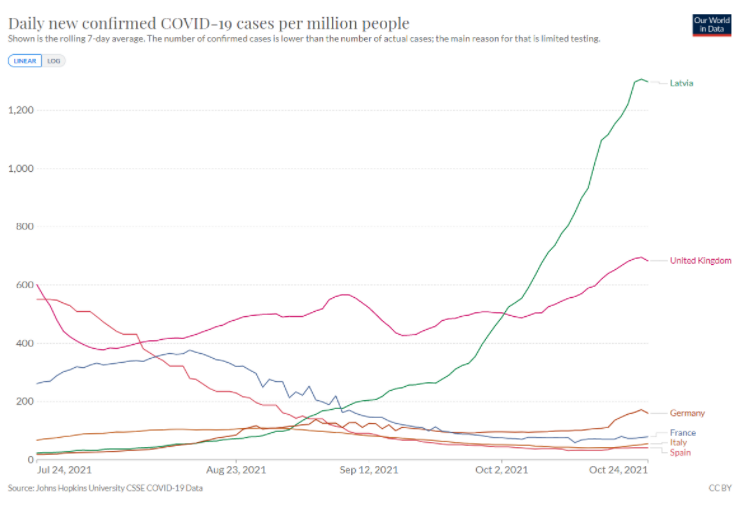Since the start of the pandemic, investment markets have enjoyed a largely uninterrupted recovery. Supported by governments and central banks alongside increased optimism as economies have reopened, markets have recovered in many instances to record highs. As the nights have drawn in however, volatility has been rising.

The S&P 500, a stock market index of US companies, fell over 5% from its peak in September on the back of rising inflation expectations, central bank statements, and data suggesting the economic recovery may be slowing down. Reaffirming the move of the past 18 months however, October has seen equity markets recover some of these lost gains.
Inflation, Inflation, Inflation
Markets fell in September as result of elevated inflation data and resulting comments from central bankers. Inflation is a big worry for investors due to actions that central banks might take to counter it. Current monetary policy is very accommodative with large asset purchase programmes and record low interest rates. These policies have been a big driver behind the returns markets have enjoyed in the last 18 months and so central banks being forced to enact more hawkish policies creates a more difficult environment for risk assets.
Inflation expectations have been steadily rising over the year; supply chain issues have been impacted globally alongside increased demand as economies have reopened, enabling consumers to spend excess savings accrued during the pandemic. There is therefore increasing acceptance that some prices will remain elevated for longer. With UK inflation above 3%, more than the Bank of England’s target of 2%, markets have adjusted their expectations that the Bank of England will raise interest rates to counter this rise, perhaps even before the end of the year. The adjustment in these expectations can be seen in the change to the yield curve.

Source: https://www.bankofengland.co.uk/statistics/yield-curves
Part of the difficulty for investors in a diversified portfolio is the high valuation of government bonds. Bonds are priced in line with their yields so when yields change the underlying price of the bond moves to compensate for the change. The problem is this relationship is inverse, meaning rising yields mean the capital value of the bonds fall. We can see the impact this has had on gilt valuations, on what is traditionally regarded as a ‘safe’ investment when held to maturity. It places investors in a difficult position, should tighter policy undermine the fragile economic recovery.

It is very interesting to remark however on the pace of recovery in markets since the small fall in September. One reason is that confidence in markets remains high. Despite the challenges that businesses have faced this year, many have reported strong earnings. Alongside this elevated confidence, a significant number of investors continue to hold large savings accrued during the pandemic. This has led to a regular trend of ‘buy the dip’ meaning any fall like in September has been jumped on by investors seeking a better value entry point.
What about covid?
Covid has seemingly not impacted the investment narrative for much of the year now. Vaccines have been proven to be effective in reducing hospitalisations and economies have reopened without overloading health services. Cases numbers however remain high, and at high enough levels that government officials have been forced to tread past ground in emphasising the need for ‘responsibility’.

The UK is a bit of an anomaly amongst developed European nations in the level of cases and it is hoped it will not lead to a situation like Latvia, which has reimposed a 4-week lockdown. The virus is only likely to reimpose itself in investors’ minds if restrictions were to be reintroduced. This would cause challenges for economies around the world, both as central banks seek to rein in accommodative policy and given covid support schemes such as furlough here in the UK have been mostly wound up.
Long term investing
Investors have enjoyed 18 months of mostly rising markets, and many have perhaps forgotten what it feels like to see their investments fall in value. There are no doubt challenges ahead for markets, but the important factor is to remain invested. Panicking and selling out in September would have been a regretful decision now markets have regained lost ground. The investing adage goes ‘it is time IN the market, not timing the market’. This will always remain true for long term investors.
Invitation
If you would like to discuss your financial plan and investment strategy, then we would love to hear from you. Get in touch with your Financial Planner here at Vesta Wealth in Cumbria, Teesside and across the North of England.
Reach us via:
t: 01228 210 137
This content is for information purposes only. It should not be taken as financial or investment advice. To receive personalised, regulated financial advice regarding your affairs please consult your Financial Planner here at Vesta Wealth in Cumbria, Teesside and across the North of England.

